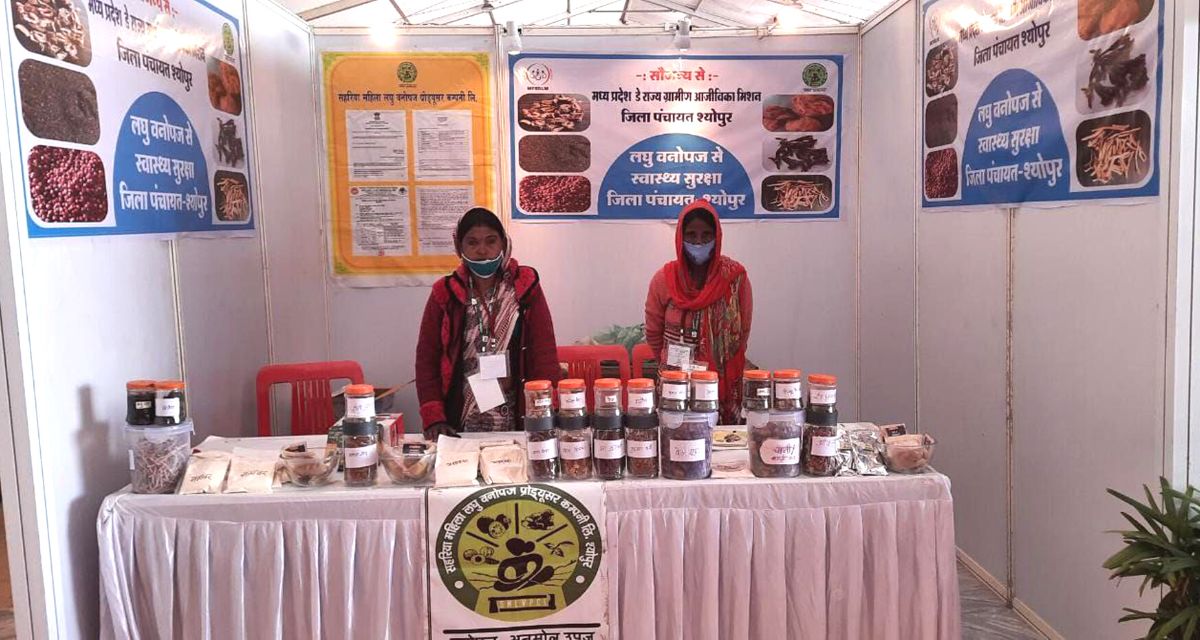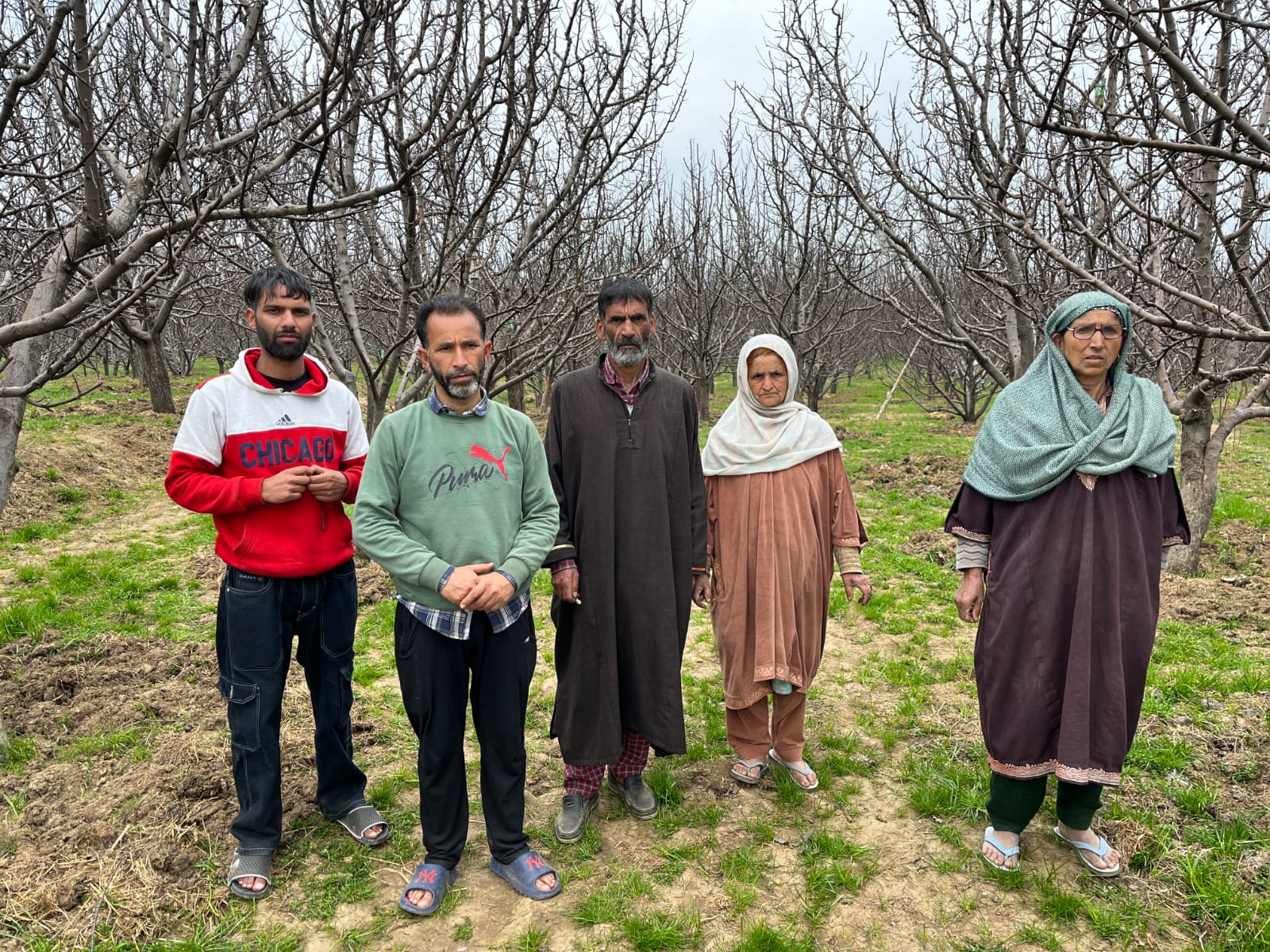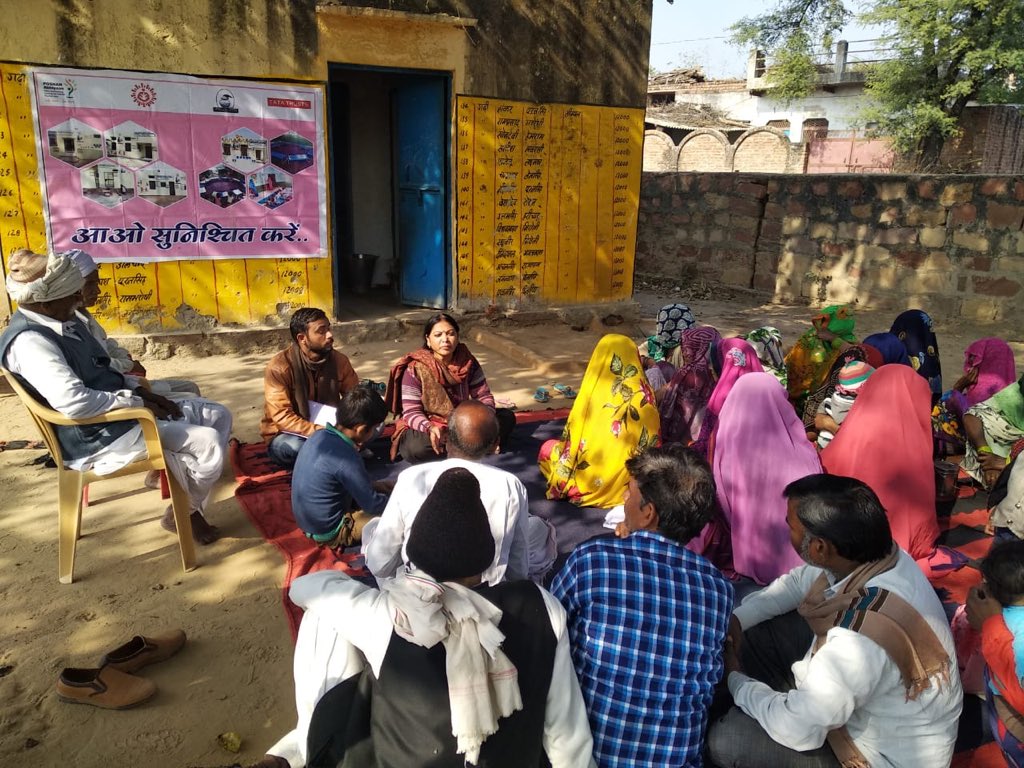By Mohammad Asif Siddiqui
The Sahariya tribal people in Occhapura village of Sheopur district live by the motto ‘Jungle hamara, uska nuksan bhi hamara (forest is ours, its loss too is ours)’. They depend on the buffer zone of the 748 sq km forest around River Kuno, formally known as Kuno National Park, to earn a living by harvesting gum, honey, shatavari (asparagus), gudmar leaves, nagarmotha (nut grass) and similar produce.
However, this May, their homes came under the newly-demarcated eco-sensitive zone. “After the cheetah introduction programme, a few restrictions have been imposed on entry into the buffer zone. We are not sure how it will affect us in future. We are worried,” says Parvati Sukhcharan, whose family harvests gum from 500 pine trees allotted to them.
At stake is the hard work put in by the community members over the last five years by setting up an agriculture and allied activities business — Sahariya Mahila Laghu Vanopaj Producer Company Limited — with the assistance of the National Rural Livelihood Mission (NRLM).
A first-of-its-kind company operating in the tribal-dominated Vijaypur and Karahal blocks, it has an annual turnover of Rs 1.5 crore with over 1,200 Sahariya women forming its part, either as sellers or shareholders.
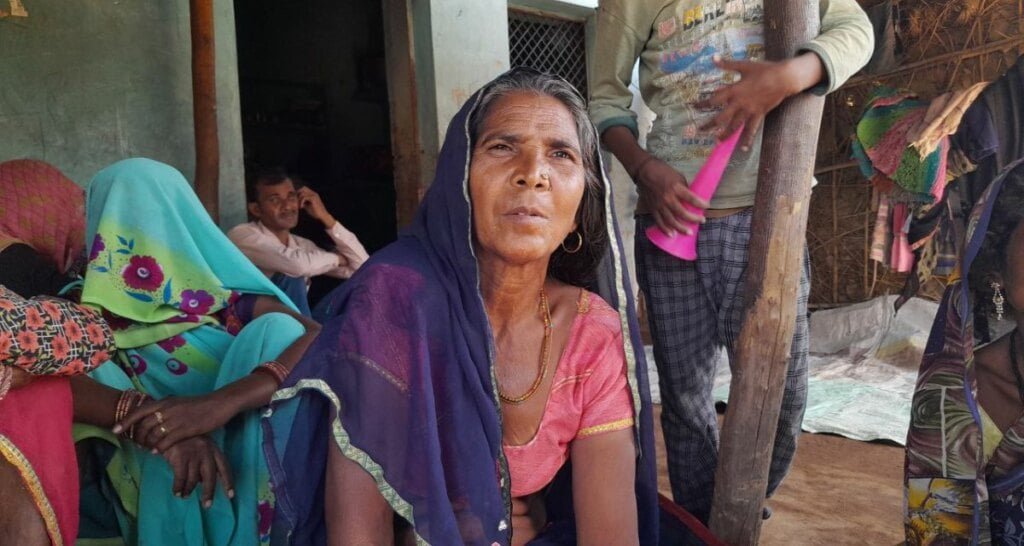
In 2017, most families in the area were in debt. They were forced to sell minor produce at very low prices to agents/money lenders in exchange for short-term loans. As expected, they never earned enough to come out of debts. “After the company was formed, we started getting competitive prices for our labour,” Basantibai Reechha, the president of Jai Bhoomiya Baba Village Collective, tells 101Reporters. The collective has 16 SHGs functioning under it.
A lesson in people’s participation, the Vanopaj Producer Company offers a higher than market price to the minor forest produce collectors and helps funnel the benefits back to the members of the community.
Also read: Tribal Women Puncture Stereotypes, Set Up Own Repair Shops In Madhya Pradesh
Humble beginnings
Initially, the NRLM team led by Vijaypur coordinator Brajesh Sharma and Karahal coordinator Anuj Vijayvargiya studied the area and made a proposal to launch a company. The district panchayat later hired Bhopal-based NGO Access Development to help set up the company in 2017.
The tribal people were hesitant at first, despite the NRLM members educating them on the benefits. But when they saw how kakora (spiny gourd) and amla (gooseberry) were being sold at a higher price by the SHGs, many women voluntarily came forward.
The women who joined the initiative were sold a company share worth Rs 100. Five of them later became part of the board of directors, which meets twice every month to decide the best course of action for the company.
The anecdotes that Sahariya women Dwarka Kamlesh, Draupadi Gulab and Jamna Ramdas Adivasi shared with 101Reporters reveal the transformation they underwent in the last five years — in terms of family incomes, confidence levels and general awareness.
Kamlesh, the company director, says every tribal family now earns Rs 6,000 to 8,000 per month. Her house acts as a collection centre for forest produce, and she pays for them using the advance amount that the company provides her.
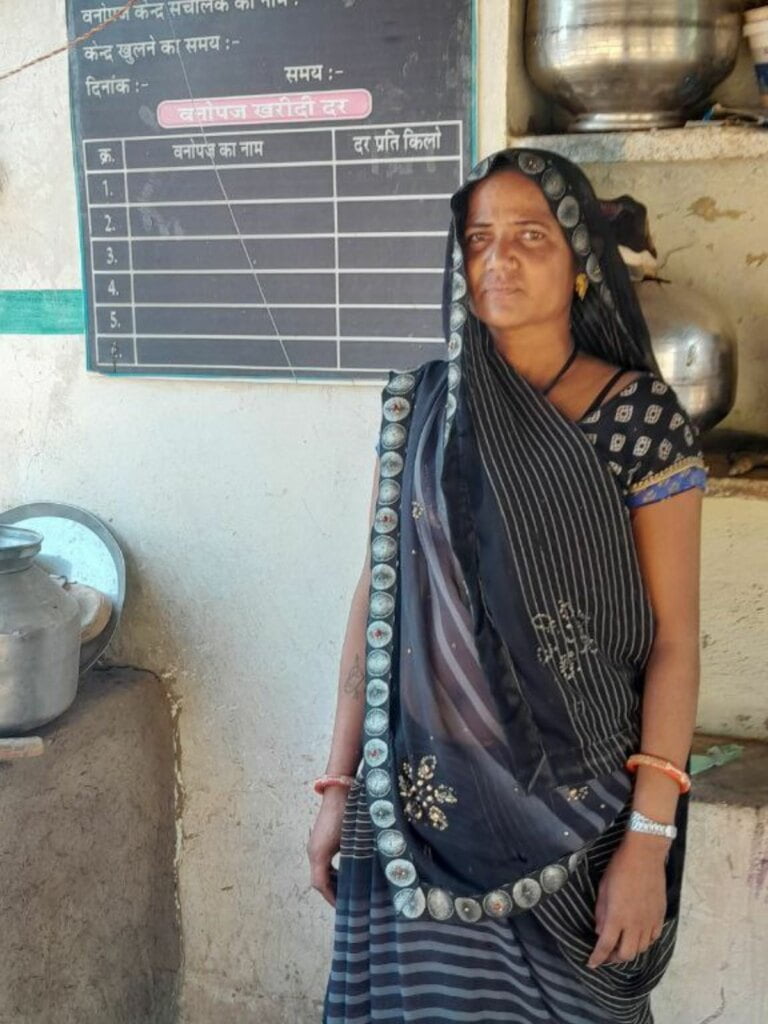
Gulab, an active member of Jai Hanuman SHG, now enjoys a say in the family’s matters — a position she never had earlier. Jamna, the company chairman, says her village Nichli Khori, though small in size, sees an annual business of Rs 60,000 to 70,000.
Kamla Ramotar of Kheri village in Karahal block is a company director and collection centre in charge. She actively collects medicinal herbs from the forest. “I earn around Rs 1.5 lakh annually… Everyone calls me ‘madam’ now.”
Vanopaj Producer Company CEO Sapna Tiwari says the firm used to buy forest produce and sell it to different villages at first. Two years ago, it launched a processing unit to make shatavari powder — an adaptogenic herb used to regulate hormones. “Now, we await a licence from the Ministry of Ayush to enter the market with our shatavari capsules.”
Also read: Tribal Women In Chhattisgarh Innovate With Forest Produce
Resource sharing
The tribal community with its vast bank of traditional knowledge can tell exactly where to look for a medicinal herb based on weather pattern and forest undergrowth. “But we were not aware of the trade practices, which is why the traders took advantage of us. Ever since the company became active, there have been strict quality checks,” Reechha says.
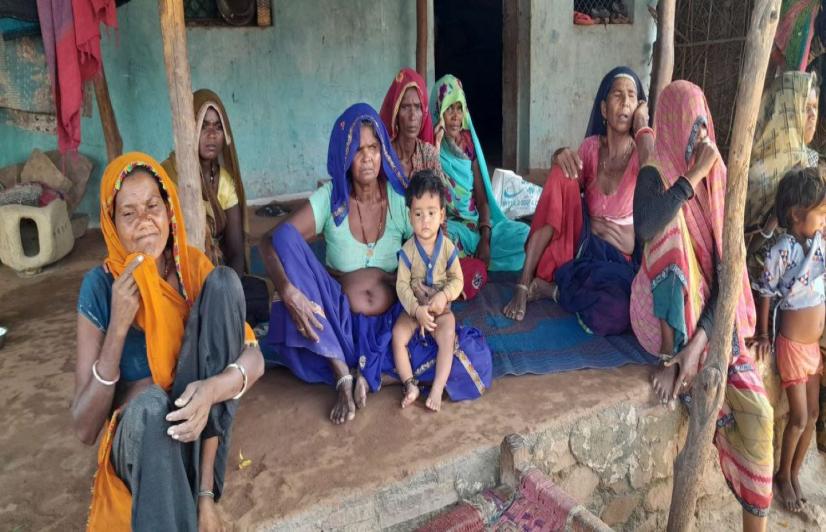
According to Dammo Narottam, a member of Jai Hanuman SHG, every family has been assigned an area rich in medicinal herbs. Only those from that particular family can harvest the produce. As this is a well-defined system, there has been no fights between families over resource sharing. “For the last 23 years, my family has taken care of 300 trees and harvested resources from them. I can say for sure that we have not lost a single tree in as many years.”
“The forest is our source of livelihood. We go to great lengths to conserve it. We have learnt all our conservation techniques from our ancestors,” adds Reechha.
The villagers have devised a system to inform each other if they suspect any illegal activity in the forest. They immediately alert the forest department also. A rule bars cutting down green young trees. Those who dare to make such a mistake are barred from entering the forest.
Two months ago, the tribal people had seized a truck moving suspiciously in Vijaypur block. Their vigil paid off as the truck was carrying illegally felled trees.
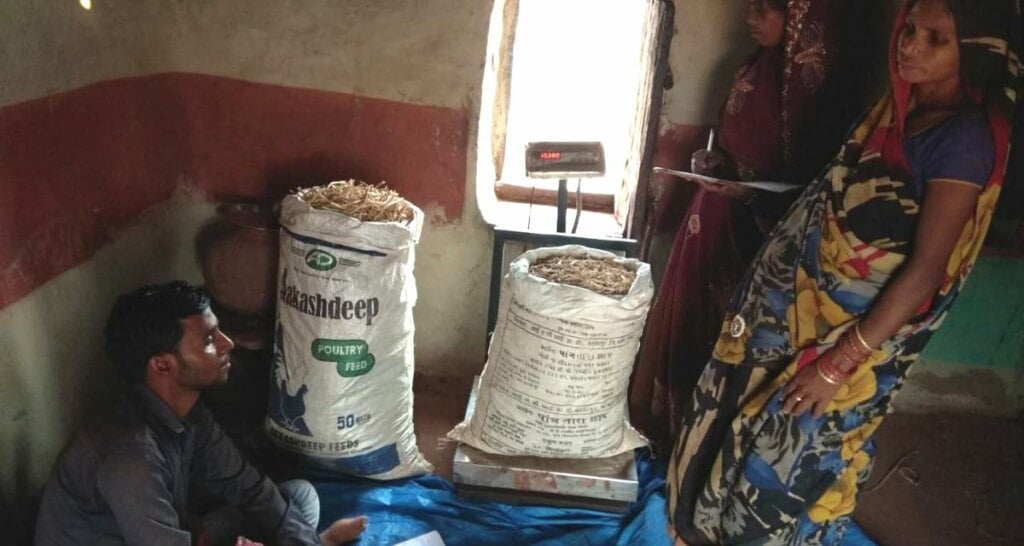
Occhapura’s Pappulal Sanaiyalal and his daughter, who is part of the Jai Hanuman SHG, harvest medicinal herbs and earn decently. “After my wife died, the company shares (worth Rs 2,500 now) were transferred to our daughter. Whatever we have is because of the forest, which is why we want to protect it.”
Though cheetahs pose a risk to the livelihood of tribals, Kuno National Park Divisional Forest Officer Prakash Kumar Verma claims that may not be the case as the department has been equipping the Sahariya youth. “So far, we have trained four Sahariya boys to work as drivers and 15 (of a total 30) as guides. Tribal youth are directly connected to the forest. They know every tree present there. We will refine their skills, so that the tourists coming here get on-ground information about the area.”
Asif Siddiqui is a Khandwa-based freelance journalist and a member of 101Reporters, a pan-India network of grassroots reporters.
